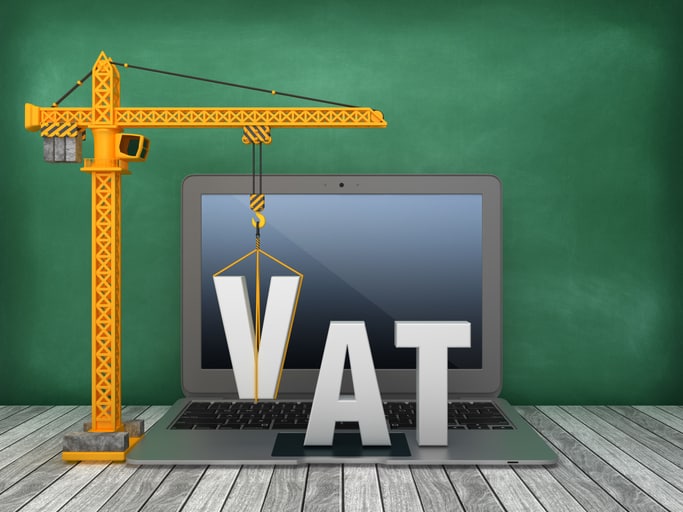Coronavirus: UK VAT Deferral
Last week the Chancellor of the Exchequer announced that there will be a deferral of VAT due to be paid between 20 March 2020 until 30 June 2020, see here: https://www.gov.uk/government/publications/guidance-to-employers-and-businesses-about-covid-19/covid-19-support-for-businesses
This essentially means that businesses will automatically qualify to defer payment of the VAT due on their VAT returns for the VAT periods ending February, March or April 2020 until 31/3/2021, although VAT refunds and reclaims will be paid by HMRC as usual.
Clearly the situation is developing, and it may be that the Chancellor extends the deferral period or changes the terms etc and will advise accordingly.
However, at present the guidance currently issued by HMRC is very short and lacking in detail, so what else can we take from the current limited advice?
Default Surcharges
The deferral has been confirmed to be an automatic offer without the need for application to HMRC and therefore, whilst not explicitly stated, it appears reasonable to assume that default surcharges will not apply to these VAT periods.
Assuming the above is correct, our understanding is that the issuing of Default Surcharges is an automated process and therefore it is not clear how this will work in practice; unless the default surcharge automatic process can be ‘turned off’ by HMRC, then it may be that default surcharges are automatically issued and then subsequently be withdrawn/cancelled by HMRC – we will have to wait and see on that one.
However, the deferral only applies to the VAT payable, not to the submission of the VAT return itself and therefore it must be assumed that the normal default surcharge rules will apply if the VAT return is submitted late.
Interest
Interest is normally only charged by HMRC on under declarations of VAT, not on VAT that is due on a VAT return but paid late; that’s the territory of Default Surcharge. Therefore, although not explicitly stated, it appears interest would not be charged on any deferred VAT.

Overseas businesses
It is unclear whether the deferral applies to business based outside the UK but registered for VAT in the UK, given that HMRC’s advice simply states that “All UK businesses are eligible”.
However, if HMRC meant the deferral to apply to any businesses registered for VAT in the UK, irrespective of where they are located, HMRC would have said so (perhaps something like “All businesses registered for VAT in the UK”).
On that basis it must be assumed that businesses that are registered for VAT in the UK but not based in the UK are not covered by the deferral.
Existing Time to Pay installments
Again, the advice makes no reference to existing time to pay agreements where instalments would fall to be paid during the deferral period.
However, the implication from their advice is that the deferral relates to ‘new’ VAT that becomes due during the deferral period, given that no application is required for deferral.
Clearly an existing Time to Pay agreement is firstly an ‘agreement,’ so has thus come about as a result of an ‘application’ to HMRC for time to pay but, probably more importantly, also relates to ‘old’ VAT that became due prior to the deferral period.
It must therefore be safe to assume that the deferral doesn’t apply to instalments due under pre-existing time to pay arrangements and if payment of an instalment is an issue then that should be discussed with HMRC’s Debt Management Unit.
[contact-block]Related News Articles
Mileage Tax Relief Guide
Guide to Claiming Tax Relief on Mileage Expenses (Where Reimbursed Below HMRC Rates) Step 1: Confirm Eligibility You may claim tax relief if: - The mileage relates strictly to business travel (not ordinary commuting). - You are using your own vehicle. - Your employer reimburses you below the HMRC Approved Mileage Allowance Payments (AMAP): -…
Government to Raise Income Threshold for Self-Assessment Reporting and Launch Simple Online Tax Payment System
Move expected to reduce administrative burdens for up to 300,000 taxpayers The Government has announced its intention to raise the income threshold at which individuals are required to register for Self-Assessment. This change will affect taxpayers with low levels of trading, property, or miscellaneous income and forms part of a broader package aimed at simplifying…
Mandatory Real-Time Reporting of Benefits in Kind Delayed Until April 2027
HMRC delays mandatory payrolling of most employee benefits by one year HM Revenue & Customs (HMRC) has confirmed a 12-month delay in the implementation of mandatory real-time reporting for most benefits in kind (BiKs). Initially expected to come into force in April 2026, the requirement will now apply from April 2027. This extension follows feedback…